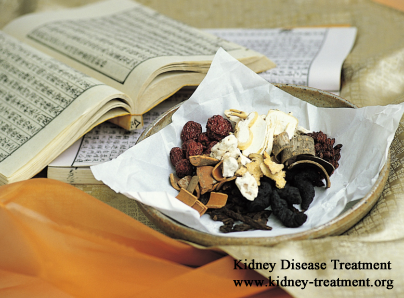Chinese Herbs for Kidney Disease Patients with Anemia
2014-02-14 07:19
 Anemia is a common complication for kidney disease patients, which can make people dizziness, tinnitus, headache, insomnia, dreaminess, hypomnesia and inattention. The main cause of anemia is low hemoglobin, and the low hemoglobin is mainly caused by lack of iron. Some people want to improve their anemia through using Chinese herbs, and in this article, we will introduce some Chinese herbs which can help improve the anemia.
Anemia is a common complication for kidney disease patients, which can make people dizziness, tinnitus, headache, insomnia, dreaminess, hypomnesia and inattention. The main cause of anemia is low hemoglobin, and the low hemoglobin is mainly caused by lack of iron. Some people want to improve their anemia through using Chinese herbs, and in this article, we will introduce some Chinese herbs which can help improve the anemia.
Chinese herbs have a history for more than 5000 years, and Chinese herbs can help treat all kinds of disease. We use Chinese herbs to improve the anemia through improving the Qi in body, which can help improve the condition of Qi and Blood in body. Here are some Chinese herbs which can be used to enrich the blood:
1. Ginseng, atractylis ovata, poria cocos, liquorice, rehmannia, angelica sinensis, white paeony root and ligusticum wallichii, all these have the functions of enriching Qi and blood. They are very helpful in improve the pale face, poor appetite, weakness and short of breath caused by anemia.
2. Ginseng, astragalus, Atractylis ovata, Poria cocos, liquorice, prepared rehmannia root, Angelica sinensis, white paeony root, cinnamon, orange peel, Schisandra chinensis, polygala tenuifolia, fresh ginger and Chinese-date. All these have the function of invigorating qi and blood and helping soothe the nerves for people.
3. Ginseng, astragalus, Atractylis ovata, fushen, liquorice, Angelica sinensis, longan aril, spina date seed, polygala tenuifolia, elecampane, fresh ginger and Chinese-date. All these can help tonifying spleen and heart, besides, they can also enrich qi and blood.
4. Polygonum multiflorum, poria cocos, the root of bidentate achyranthes, barbary wolfberry fruit, angelica sinensis, the seed of Chinese dodder and fructus psoraleae, these are also good for kidneys and help enrich qi and blood.
- Tag: Herbal Medicine
- Pre: Can I Drink Parsley Tea with Kidney Cysts
- Next: Is Cordyceps Sinensis Helpful for Kidney Disease Patients
